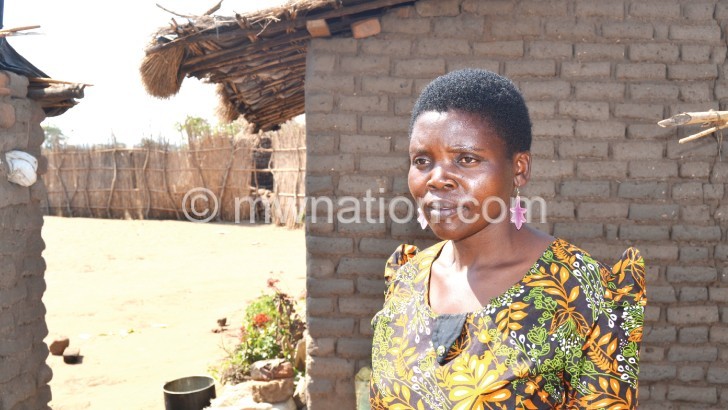Taking draft abortion law to rural women
The numbers are staggering. Over 141 000 women and girls in Malawi induce abortions unsafely and nearly half of them suffer deadly complications, writes our contributor AKWETE SANDE writes.
Mention ‘abortion’ and some Malawians’ emotions will run high and religious pronouncements creep in.
For many, facts do no matter. Here, termination of pregnancy is seen as a taboo of society. But it is a daily occurrence, a neglected public health crisis.
Over 380 women in the country induce abortions daily.

“For those of us in cities, abortion isn’t a big deal. You walk into a private clinic at lunch hour. Within 30 minutes, the procedure is done and you walk back to work and no one suspects anything,” boasts a youthful woman based in Blantyre.
But girls and women in rural areas do not have this luxury.
“We lost a woman last week who went to a herbalist for an abortion. She lost a lot of blood and died on the way to the hospital,” a 42-year woman said at a meeting convened by Centre for Solutions Journalism (CSJ) in Mulanje.
For clinicians, extracting wires, sharp sticks and toxic herbs in birth canals of survivors of unsafe abortion tells a tale of two worlds.
Rural women suffer untold injuries, deaths and disabilities while inducing abortions.
A 2015 study by Centre for Reproductive Health at the College of Medicine (COM), a constituent college of the University of Malawi in Blantyre and US-based Guttmacher Institute lifts the lid on this silent crisis.
“Over 141 000 abortions occur in Malawi—at an annual rate of 38 abortions per 1 000 women of reproductive age—all of which indicates that abortion is common in the country,” the findings, released last year, show.
These abortions are mostly performed under clandestine and unsafe conditions and often result in complications, the researchers report.
According to Ministry of Health, unsafe abortions kill almost 18 in every 100 women dying of pregnancy-related complications.
Most of these deaths occur in rural areas, where 80 percent of Malawians live.
At 439 deaths in every 1000 live births, the country has one of the highest maternal death rates globally.
Paradox
The paradox is that unsafe abortions remain rampant although the country has restrictive abortion law introduced by Britain in 1930.
Malawi inherited the colonial law without changing even a comma after independence in 1964.
The Penal Code only outlaws termination of pregnancy except to save a woman’s life.
The penal law prescribes seven years imprisonment for a woman who unlawfully procures an abortion and three years’ imprisonment for a person who unlawfully supplies drugs intended to induce an abortion.
Dr Chisale Mhango, a seasoned gynaecologist based at COM, describes the abortion law as “toothless and irrelevant”.
He says: “Restrictive laws do not stop abortion from occurring; they just force women to resort to clandestine procedures which are often unsafe.
“This outdated law has failed to address the problem of unsafe abortion which at the moment is an urgent public health priority.”
Proposed law
Despite the existing restrictions, unsafe abortions are usually performed by unskilled hands.
In February 2015, the Law Commission recommended liberalisation of abortion laws to reduce the negative impacts of unsafe abortions and huge costs of post-abortion care.
The commission reaffirmed the country’s obligation to provide safe abortion in line with the Maputo Protocol and other conventions.
The proposed Termination of Pregnancy Bill expands exceptions to allow girls and women to procure abortion from certified health service providers (1) when the continued pregnancy will endanger the life of a pregnant woman; (2) to prevent injury to the physical or mental health of a pregnant woman; (3) where there is severe malformation of the foetus which will affect its viability or compatibility with life; and (4) when the pregnancy is a result of rape, incest or defilement reported to police.
According to the proposed Bill, termination of pregnancy shall not be performed on demand or for any other reason.
Huge support
Rural sexual and reproductive health rights (SRHR)groups support the proposed reforms.
A woman in Mulanje, whose relative died after unsafe abortion, appealed to our government to ensure that the proposed law is passed.
“Issues of sexual and reproductive health and rights are personal and private. Those who do not want to access abortion services due to their religious or cultural beliefs should be respected. Those who are desperate to access such services should not be denied the opportunity. But no single group should force their views on others,” said group village head Tambala.
CSJ, with support from Safe Abortion Action Fund, is training rural SRHR groups on the proposed Bill in Mulanje, Chiradzulu and Zomba.
In his presentation, CSJ director Brian Ligomeka said it is a pity that calls for safe abortion was a “class issue”.
He said: “The rich, the urbanites and the educated know where to get safe abortions and pretend to be holy during public debates. It is the poor, the villagers, the barefoot women and girls who are bearing the heavy burden of unsafe abortions.”
Malawi is marketed as “a God-fearing nation”, a catchphrase that often pops up when debating the proposed reforms.
But Ligomeka calls this sheer hypocrisy.
“Should a nation where corruption is rampant, rape and defilement are soaring only call itself a God-fearing nation when it comes to abortion law reform?”
He urges the male-dominated citizenry to stop using culture and religion to oppress women and slow progress towards the enactment of the proposed Termination of Pregnancy Bill.
He praised SRHR women groups in rural areas for supporting abortion law reform. na





